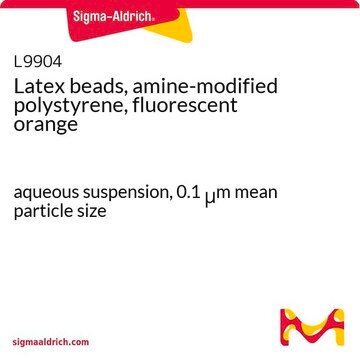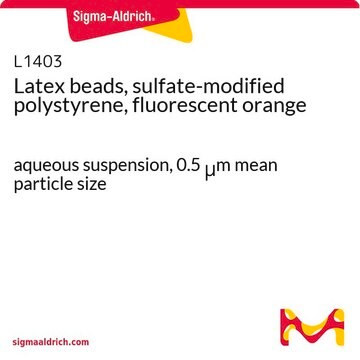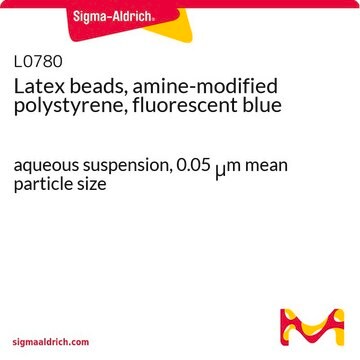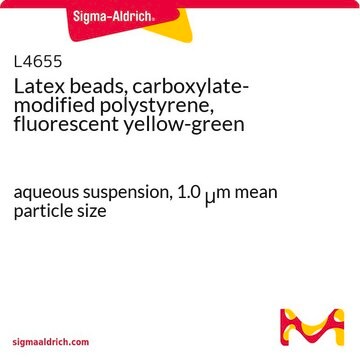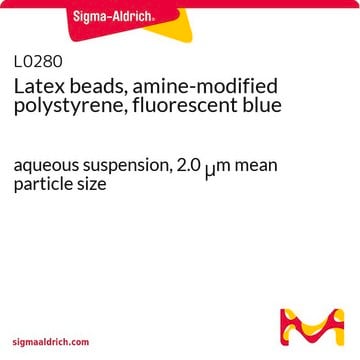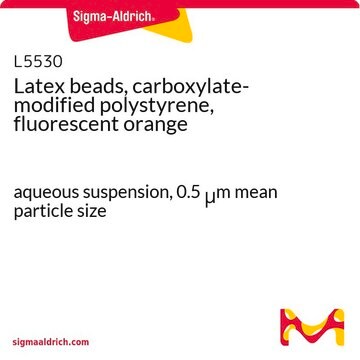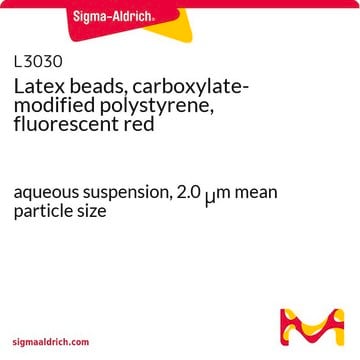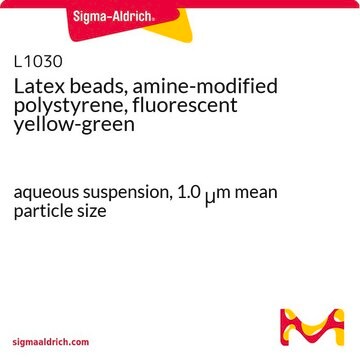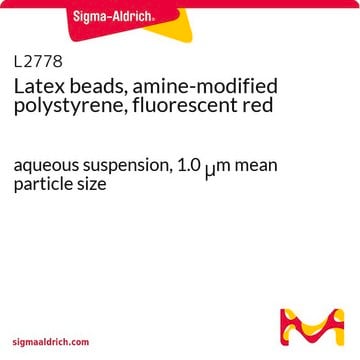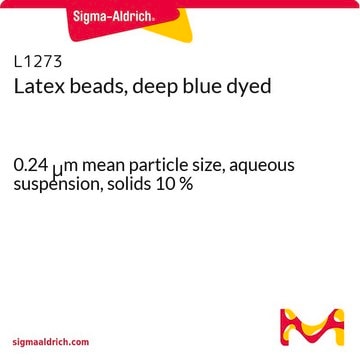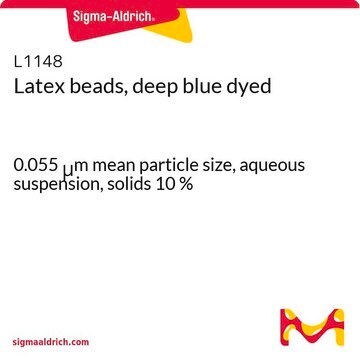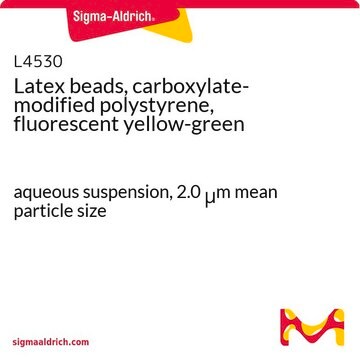L1528
Latex beads, sulfate-modified polystyrene, fluorescent orange
aqueous suspension, 0.1 μm mean particle size
Zaloguj sięWyświetlanie cen organizacyjnych i kontraktowych
About This Item
Polecane produkty
Postać
aqueous suspension
skład
Solids, 2.5%
metody
cell based assay: suitable
średnia wielkość cząstek
0.1 μm
fluorescencja
λex ~520 nm; λem ~540 nm
Zastosowanie
cell analysis
Szukasz podobnych produktów? Odwiedź Przewodnik dotyczący porównywania produktów
Zastosowanie
Sulfate-modified polystyrene latex beads have been used to develop an electrochemical nitrite nanosensor as well as in voltammetric studies. Sulfate-modified polystyrene latex beads have been used to explain the partitioning behavior for certain species of bacteria.
This page may contain text that has been machine translated.
Kod klasy składowania
10 - Combustible liquids
Klasa zagrożenia wodnego (WGK)
WGK 2
Temperatura zapłonu (°F)
Not applicable
Temperatura zapłonu (°C)
Not applicable
Certyfikaty analizy (CoA)
Poszukaj Certyfikaty analizy (CoA), wpisując numer partii/serii produktów. Numery serii i partii można znaleźć na etykiecie produktu po słowach „seria” lub „partia”.
Masz już ten produkt?
Dokumenty związane z niedawno zakupionymi produktami zostały zamieszczone w Bibliotece dokumentów.
Klienci oglądali również te produkty
Delfine Cheng et al.
Micron (Oxford, England : 1993), 132, 102851-102851 (2020-02-25)
Kupffer cells are liver-resident macrophages that play an important role in mediating immune-related functions in mammals and humans. They are well-known for their capacity to phagocytose large amounts of waste complexes, cell debris, microbial particles and even malignant cells. Location
Hong Sun et al.
Biophysical chemistry, 110(3), 297-308 (2004-07-02)
A novel hemoglobin (Hb)-coated polystyrene (PS) latex bead film was deposited on pyrolytic graphite (PG) electrode surface. In the first step, positively charged Hb molecules in pH 5.0 buffers were adsorbed on the surface of negatively charged, 500 nm diameter
Effect of ionic strength and ionic species on partitioning behavior of hydrophobic and hydrophilic polystyrene latex beads in aqueous two-phase polymer systems
Tripp, B.C., et al.
Colloids and Surfaces, B: Biointerfaces, 6, 151-164 (1996)
Electrochemical nitrite nanosensor developed with amine- and sulphate-functionalised polystyrene latex beads self-assembled on polyaniline
Muchindu, M., et al.
Electrochimica Acta, 55, 4274-4280 (2010)
Nasz zespół naukowców ma doświadczenie we wszystkich obszarach badań, w tym w naukach przyrodniczych, materiałoznawstwie, syntezie chemicznej, chromatografii, analityce i wielu innych dziedzinach.
Skontaktuj się z zespołem ds. pomocy technicznej